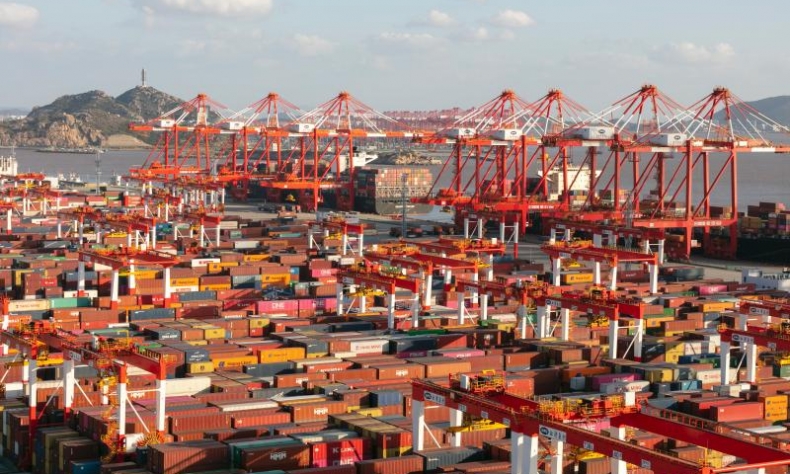Continued Openness and Free Trade Essential for Negating Economic Slump

The focus is ultimately about getting the world “back to normal” and overcoming the political and diplomatic difficulties caused by COVID-19.
China’s official trading data was released this week, showing exports surging by 50.1% year-on-year, totaling a record 3.06 trillion yuan from January to February, while imports also climbed by 14.5%.
The lift off is firstly a sign of China’s enduring economic strength having avoided the pitfalls of the COVID-19 throughout the past year, and, secondly, an indication that the broader global economy is moving into recovery as vaccinations get underway leading to a resurgence in consumerism.
Setting its sight on sustained growth throughout the year, China’s foreign policy is likely to continue to advocate global stability, including a focus on resetting its relationship with the United States.
The Western mainstream media depict the United States and China as zero-sum political rivals and frame everything in terms of geopolitical confrontation and competition. The preceding Trump administration’s aggressive foreign policy was no help.
However, this blurs a more nuanced reality. The success of America’s economy automatically poses gains for China, and vice-versa, and on that premise, it is the faster than expected rebound of the U.S. economy which has contributed to China’s boom in exports.
As vaccinations pick up in America, life is finally getting back to normal, consumer confidence is returning and the White House has succeeded in getting its bumper stimulus bill through Congress. The result is that faster American growth automatically pulls China with it as it accelerates the pace of imports of various products.
Despite Trump’s tariffs and the trade war he waged, as well as numerous voices advocating “decoupling,” China continues to be the largest trading partner of the United States.
It’s not just America. Exports to Europe are also surging. In 2021, China has overtaken America to become the EU’s largest trading partner. The gamechanger has been the creation of the Europe-China railway, a series of transcontinental freight routes allowing cargo to move far cheaper, faster and more effectively than via traditional shipping routes.
The export boom is directly linked to this project with train runs having surged 96% between January and February, a 23% year-on-year increase. Although the pandemic recovery is slower in Europe, the demand for medical supplies has also pushed exports up. Once European consumerism gathers pace, expect this service to be running at an even higher capacity.
A push for stability
The export boom is good news for China as it strives to power ahead. The country has targeted its economic growth at over 6% for 2021, but this is actually a modest total compared to that independent economists have forecast, with organizations such as the International Monetary Fund predicting a more robust 8% or so.
Either way, China’s economy is likely to continue to heat up in the wake of bulging global demand. The country’s foreign policy is likely to spend most of the year advocating stability in its relationships with various countries in order to keep this momentum ticking over.
Top of the list, of course, is again the United States. The goal with Washington will be a complete reset in ties, looking to moderate Trump’s counterproductive and assertive anti-China policies in terms of trade, technology and investment.
Europe will also be important, with ratification of the EU-China investment agreement high on the agenda. Other important areas of diplomatic focus this year in securing sustained prosperity are likely to include India, Japan and South Korea.
This coincides with the broader point that this year is a year of recovery. The focus is ultimately about getting the world “back to normal” and overcoming the political and diplomatic difficulties caused by COVID-19.
China’s export boom thus shows the promise of recovery in global markets, and also why continued openness and free trade remain essential for negating the economic slump.
 Facebook
Facebook
 Twitter
Twitter
 Linkedin
Linkedin
 Google +
Google +







